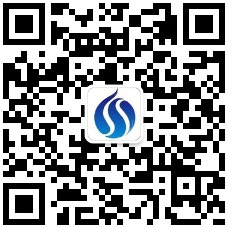报告题目:Innate Immune Signaling and Cancer Immunotherapy
报告人: Rongfu Wang, Ph.D.
Director and Senior Member
Center of Inflammation and Epienetics, the Methodist Hospital Research Institute
主持人: 冯新华 教授
时 间: 2012年9月19日(星期三)下午4:00
地 点: 医学院综合楼205报告厅
Introduction of Speaker:
The research interests of Dr. Wang include T-cell antigen discovery, regulatory and inflammatory T cells, innate immune regulation and vaccine development. He has been working on tumor immunology for more than 15 years. In the last few years, his group identified many tumor antigens including NY-ESO-1, LAGE1 and TRP1/2 as well as viral antigens such as EBNA-1 that are recognized by CD4+ and CD8+ T cells. His group developed a genetic targeting expression system to identity tumor antigens recognized by antigen-specific Treg cells derived from cancer tissues. To overcome immune suppression, he and his co-worker found that Toll-like receptor (TLR8) signaling is essential to reverse Treg cell suppressive function in human, while different TLR signaling is needed for modulating Treg cells in mice. Further studies demonstrate that MyD88-IKK and p38 signaling pathways are required for reversing Treg cell function. His group demonstrates that inflammatory IL-17-producing T (Th17) cells are accumulated in human cancer tissues, but the role of Th17 cells remains unclear. More recently, he and his co-workers have identified several novel negative regulators that control NF-kB and type I interferon pathways and inflammation. The key issue for developing effective therapeutic vaccines is to overcome immune suppression and understand the role of CD4+ T cells in cancer immunity. In collaboration with Dr. Hayes at Baylor College of Medicine, he recently completed a phase I clinical trial for prostate cancer using NY-ESO-1 peptides. Identification of novel breast cancer antigens, in particular in triple-negative breast cancer, will be of fundamental importance to develop immunotherapy against triple-negative breast cancer. Dr. Wang has extensive experience in administrating the research projects, supervising co-investigators (staffs, students and postdoctoral fellows), collaborating with other researchers and publishing peer-reviewed papers. The proposed studies represent long-term interests and experts of Dr. Wang and his team in cancer antigen discovery and vaccine development.
Honors and Awards:
Distinguished dissertation, University of Georgia, 1992.
Recipient of NIH Fellows Award for Research Excellence, 1996
Intramural Research Award, NCI, 1999-2000
Outstanding Young Scientist Award, 2000
American Cancer Society Research Scholar, 2003
The Michael DeBakey Excellence in Research Award, 2006
JacK L. Titus Professorship at BCM, 2007-2011.
Selected Publications
1. Wang, R. F., X. Wang, A. L. Atwood, S. L. Topalian and S.A. Rosenberg. 1999. Cloning genes encoding MHC class II-restricted antigens: mutated human CDC27 as a tumor antigen. Science 284, 1351-1354.
2. Peng, G. Z. Guo, Y. Kiniwa. K.S. Voo, W. Peng, T. Fu, D. Y. Wang,, Y. Li, H. Y. Wang and R. F. Wang. 2005. Toll-like receptor 8 mediated-reversal of CD4+ regulatory T cell function. Science 309, 1380-1384.
3. Miyahara, Y. K. Odunsi, W. Chen, G. Peng, J. Matszaki, and R.-F. Wang. 2008. Generation and regulation of human CD4+ IL-17-producing T cells in ovarian cancer. PNAS 105(40): 15505-10.
4. Cui, J., L. Zhu, X. Xia, H.Y. Wang, X. Legras, J. Hong, J. Ji, P. Shen, S. Zheng, Z.J. Chen, and R.F. Wang. 2010. NLRC5 negatively regulates the NF-kappaB and type I interferon signaling pathways. Cell 141:483-496.
5. Ajibade, A., Q. Wang, J. Cui, J. Zou, X. Xia, M. Wang, Y. Tong, W. Hui, D. Liu, B. Su, H.Y. Wang and R.-F. Wang. 2012. TAK1 negatively regulates NF-κB and p38 MAP kinase activation in Gr-1+CD11b+ neutrophils. Immunity. 36(1):43-54. Epub 2012 Jan 5.
6. Wang, H. Y. and R.-F. Wang. 2012. Enhancing cancer immunotherapy by intracellular delivery of cell penetrating peptides and stimulation of pattern-recognition receptor signaling. Advances in Immunology, 114:151-76.




